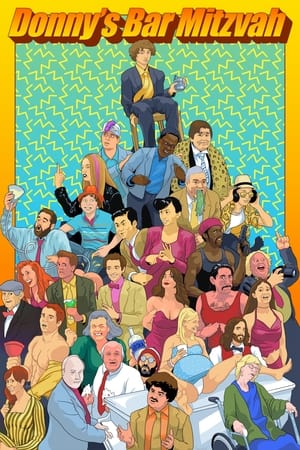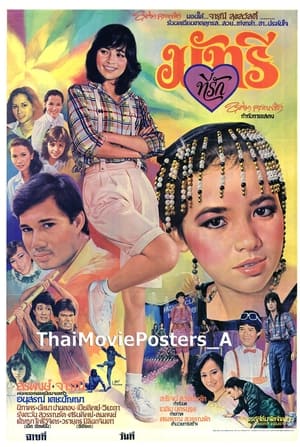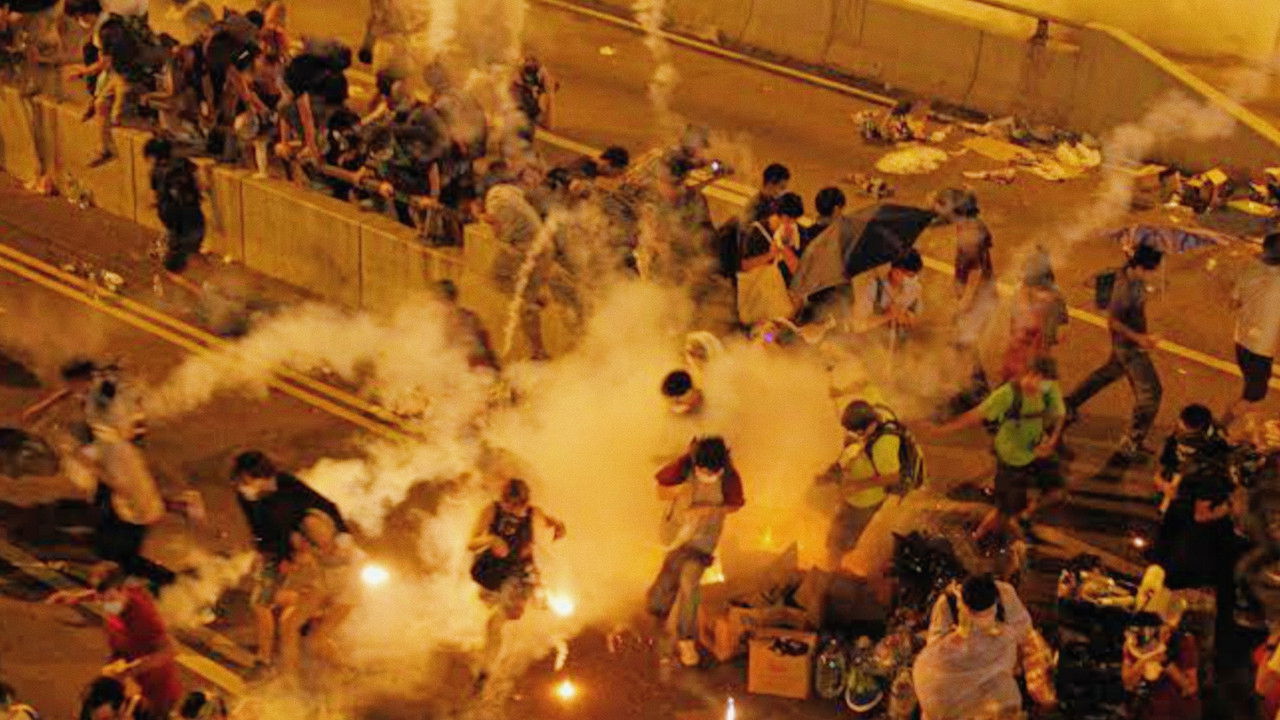
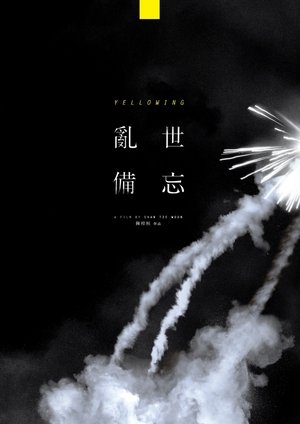
Yellowing(2016)
The turmoil that has overtaken Hong Kong since its return to Chinese sovereignty in 1997 has spawned a new generation of young, passionately committed activist filmmakers; they want to tell Hong Kong's story with Hong Kong voices. And the best indie documentary to have emerged so far from the HKSAR is this year's Yellowing, by Chan Tze Woon, a 29-year-old with degrees in policy studies and film production. Hong Kong's fraught, tense relationship with its mainland Chinese overseers came to a head with the Umbrella Movement of 2014. A crowd of protesters stormed Civic Square on September 27. The next day police shocked most residents of the HKSAR by attacking the growing crowds with volleys of tear gas, whereupon a wide cross section of Hong Kongers occupied the streets in several areas and stayed for almost 6 weeks. Chan took his camera on the streets for 67 days during these events.
Movie: Yellowing

亂世備忘
HomePage
Overview
The turmoil that has overtaken Hong Kong since its return to Chinese sovereignty in 1997 has spawned a new generation of young, passionately committed activist filmmakers; they want to tell Hong Kong's story with Hong Kong voices. And the best indie documentary to have emerged so far from the HKSAR is this year's Yellowing, by Chan Tze Woon, a 29-year-old with degrees in policy studies and film production. Hong Kong's fraught, tense relationship with its mainland Chinese overseers came to a head with the Umbrella Movement of 2014. A crowd of protesters stormed Civic Square on September 27. The next day police shocked most residents of the HKSAR by attacking the growing crowds with volleys of tear gas, whereupon a wide cross section of Hong Kongers occupied the streets in several areas and stayed for almost 6 weeks. Chan took his camera on the streets for 67 days during these events.
Release Date
2016-05-08
Average
6
Rating:
3.0 startsTagline
Genres
Languages:
广州话 / 廣州話Keywords
Recommendations Movies
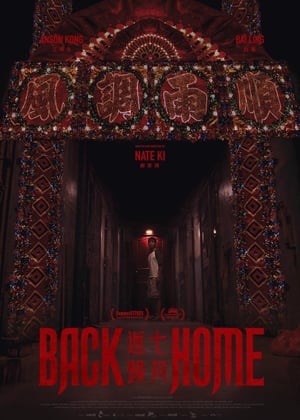 6.2
6.2Back Home(cn)
Heung Wing has been sensitive to paranormal activity and keeps seeing ghosts since he was a kid. One day, Heung Wing receives news that his mother is in coma after committing suicide, which forces him to return to the old home. Everything seems strange and weird.
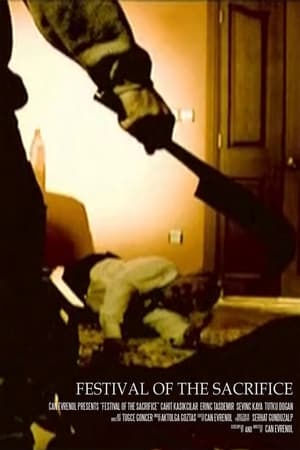 6.0
6.0Festival of the Sacrifice(tr)
A family celebrating Eid al-Adha is terrorized by an assailant who has a very different idea of sacrifice.
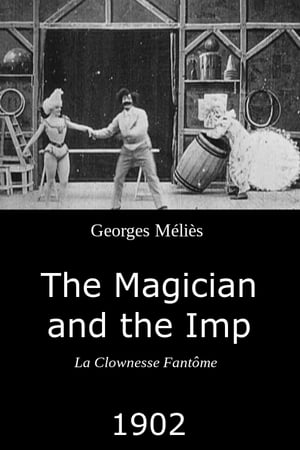 4.9
4.9The Magician and the Imp(fr)
The magician appears upon the stage with an imp as his assistant. The imp holds a piece of cloth in his hand. At the command of the magician the cloth is suddenly transformed into a beautiful girl, clad in tights. A barrel is then introduced and the girl enters one end.
 6.0
6.0Keep Our Forests Pink(en)
The Pink Panther keeps a forest park clean despite a camper's constant littering.
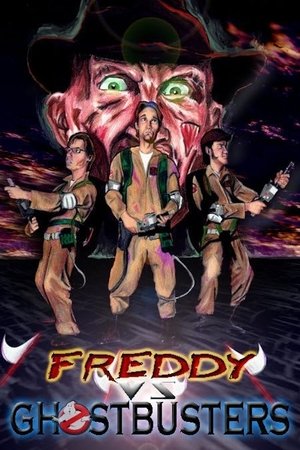 7.0
7.0Freddy vs Ghostbusters(en)
Every town has an Elm Street, and Denver is no exception. The man of your dreams crosses paths with the boys in gray--who will win the battle for 1980's supremecy?
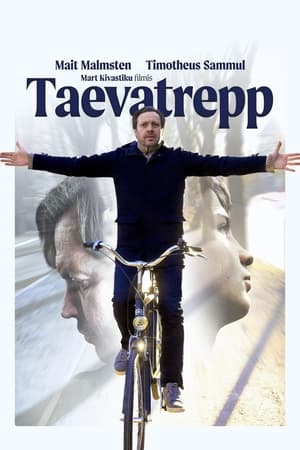 6.3
6.3Stairway to Heaven(et)
With his last breath Uu's friend entrusts him with the secret of how to go to the past. Uu is an engineer and doesn't believe in miracles, but the trick works. In the past there is a pleasant, eternal summer, long hair, girls and Jenkki chewing gum. In his real life, it is autumn, his friends are bitter, the girls are married and his father is seriously ill. At the end of the day, however, Uu has to decide in which time to live his life - in the summer of the past or in the autumn of the present.
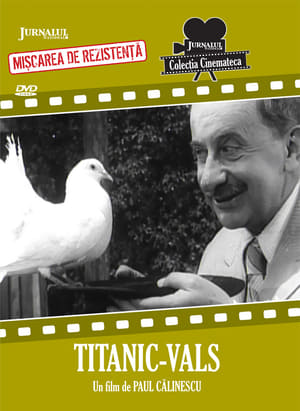 7.5
7.5Titanic Waltz(ro)
Based on a play by Tudor Mușatescu, Titanic Vals is the essence of Romanian genius in comedy, with amazing performances and the beautiful absurd of the quotidian.
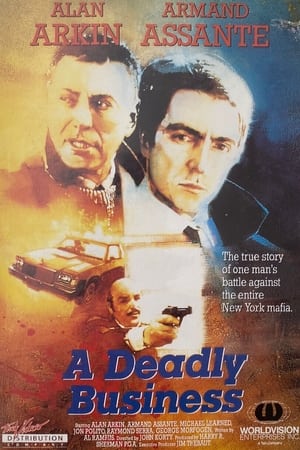 5.0
5.0A Deadly Business(en)
The movie, and true story, is about how Harold began working for the garbage industry in New Jersey only to find out that it was run by the Mafia. Having been in and out of jail most of his life, Harold feared more jail time and so went to the FBI. Harold went undercover to get as much illegal information that he could. The information he got helped put away dozens of Mafia men. Harold is currently in the witness protection program.
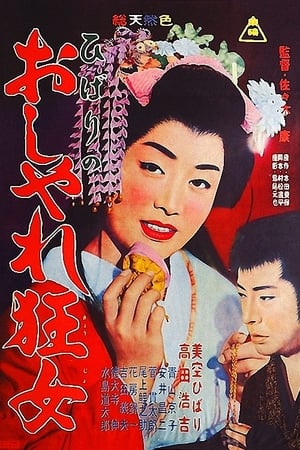 6.0
6.0Hibari is Fashion Crazy(ja)
Under a decree by the Shogun, people of all classes are forced to lead a frugal lifestyle. However, Omitsu, a woman who is thought to have gone insane after the sudden death of her father, openly disobeys this order and goes around town fancifully dressed. Unknown to all around her, Omitsu is merely acting, using her perceived madness to roam around town conducting her own secret investigation into her father's death. Will her skillful ruse help her to reveal the truth?
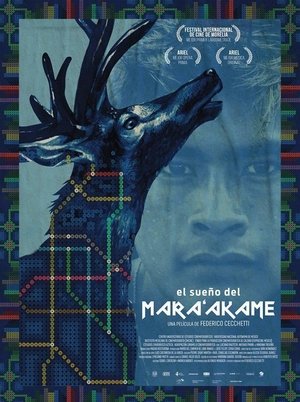 6.5
6.5Mara'akame's Dream(es)
Nieri is an indigenous teenage boy from the Wirrarika culture, who is being indoctrinated by his father on the path of dreaming to reach the Blue Deer and become a Marakame. However, Nieri doubts about having the gift that is necessary to become a Marakame. His real dream is to play Mexican country music and to go to Mexico City to play there with his friends.
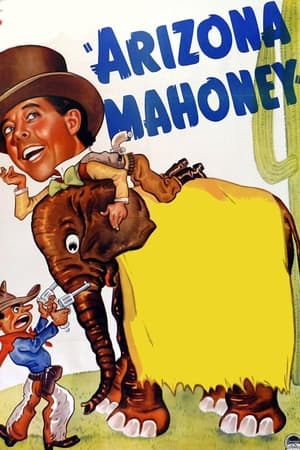 6.0
6.0Arizona Mahoney(en)
When Sue Bixby becomes his new boss, stagecoach robber Talbot reforms and goes after her rustled cattle.
 5.3
5.3Strictly for the Birds(en)
A gambler tries to strike it rich at the racetrack but gets taken by a gorgeous blonde who also happens to be a crook.
Similar Movies
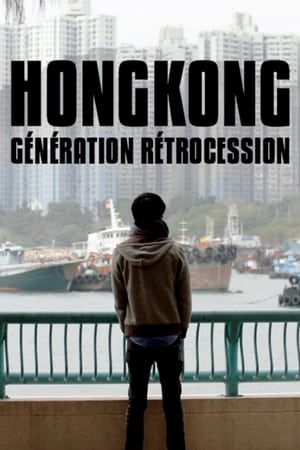 7.5
7.5Hong Kong: Retrocession Generation(fr)
In 2017, twenty years after the British handed over Hong Kong to China in 1997, young people, more politicized than any previous generation and proud of their land, do not feel Chinese and actively fight against the oligarchs who want to subdue them to China's authoritarian power.
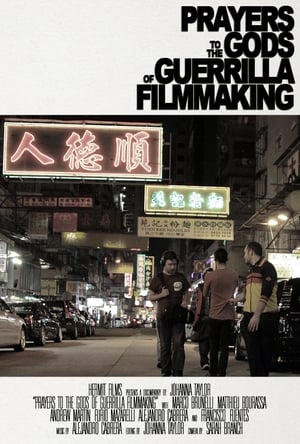 0.0
0.0Prayers to the Gods of Guerrilla Filmmaking(en)
A crew of filmmakers shoot undercover on the streets of Hong Kong with hidden microphones and no permits. The city becomes a giant set as mounting tension and ego clashes push tempers to breaking point.
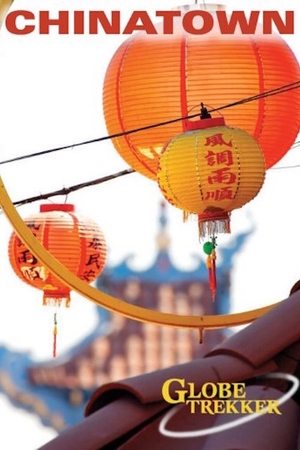 7.0
7.0Globe Trekker: Chinatown(en)
In this special edition of Globe Trekker Chinatown, Lavinia Tan, Justine Shapiro and Megan McCormick travel worldwide to explore the magic and mystery of Chinatowns across the globe. Lavinia Tan begins the journey in Malaysia and Singapore where overseas traders led the earliest migrations of Chinese people. The journey continues from there to the United States, where Justine Shapiro visits San Francisco. Megan McCormick explores New York s Lower East Side, home to the largest Chinatown in the Western Hemisphere. After a short trip to London s Soho district, Lavinia Tan ends this journey with a visit to Hong Kong exploring the world famous film industry and the 21st century migration of Chinese back to their homeland.
 10.0
10.0Trip to Asia: The Quest for Harmony(de)
Journey with the musicians of the Berlin Philharmonic and their conductor Sir Simon Rattle on a breakneck concert tour of six metropolises across Asia: Beijing, Seoul, Shanghai, Hong Kong, Taipei and Tokyo. Their artistic triumph onstage belies a dynamic and dramatic life backstage. The orchestra is a closed society that observes its own laws and traditions, and in the words of one of its musicians is, “an island, a democratic microcosm – almost without precedent in the music world - whose social structure and cohesion is not only founded on a common love for music but also informed by competition, compulsion and the pressure to perform to a high pitch of excellence... .” Never before has the Berlin Philharmonic allowed such intimate and exclusive access into its private world.
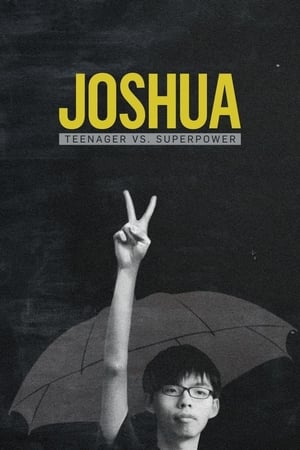 7.3
7.3Joshua: Teenager vs. Superpower(en)
When the Chinese Communist Party backtracks on its promise of autonomy to Hong Kong, teenager Joshua Wong decides to save his city. Rallying thousands of kids to skip school and occupy the streets, Joshua becomes an unlikely leader in Hong Kong and one of China’s most notorious dissidents.
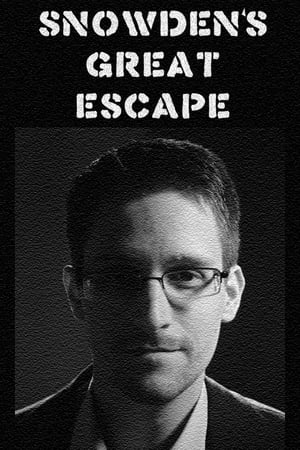 7.3
7.3Snowden's Great Escape(en)
Tells the story of how Edward Snowden managed to evade capture by the US. For the first time Snowden tells the story of how he managed to escape so that not to have to spend the rest of his life in an American prison.
 8.3
8.3Revolution of Our Times(cn)
Throughout Hong Kong’s history, Hongkongers have fought for freedom and democracy but have yet to succeed. In 2019, a controversial extradition bill was introduced that would allow Hongkongers to be tried in mainland China. This decision spurred massive protests, riots, and resistance against heavy-handed Chinese rule over the City-State. Award-winning director Kiwi Chow documents the events to tell the story of the movement, with both a macro view of its historical context and footage and interviews from protestors on the front lines.
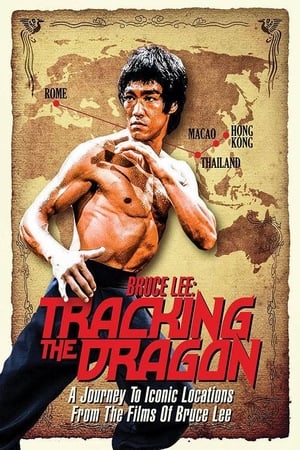 4.8
4.8Bruce Lee: Tracking the Dragon(en)
Bruce Lee expert John Little tracks down the actual locations of some of Bruce Lee's most iconic action scenes. Many of these sites remain largely unchanged nearly half a century later. At monasteries, ice factories, and on urban streets, Little explores the real life settings of Lee's legendary career. This film builds on Little's earlier film, Pursuit of the Dragon, to present a comprehensive view of Lee's work that will change the way you see the films.
 6.8
6.8Be Water(en)
In 1971, after being rejected by Hollywood, Bruce Lee returned to his parents’ homeland of Hong Kong to complete four iconic films. Charting his struggles between two worlds, this portrait explores questions of identity and representation through the use of rare archival footage, interviews with loved ones and Bruce’s own writings.
 7.0
7.0Rebellion(en)
As the 'one country two systems' policy in Hong Kong has slowly eroded, resentment among the territory's citizens has steadily grown. What began as a series of spontaneous protests against an extradition law in March 2019 has now escalated in to a full-blown popular uprising that shows no signs of abating. ABC Four Corners reports from the frontline of the action, capturing extraordinary footage of the growing tension and violence.
 7.7
7.7Memories to Choke On, Drinks to Wash Them Down(cn)
This anthology film, whose Chinese title begins with a romantic name for human excrement, premiered internationally at Rotterdam and won Best Screenplay from the Hong Kong Film Critics Society. A variety of Hong Kong people wrestle with nostalgia when facing an uncertain future. Their stories give way to a documentary featuring a young barista turned political candidate.
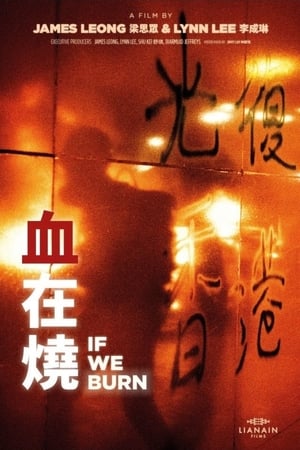 8.0
8.0If We Burn(cn)
Hundreds of thousands − perhaps even millions − of protestors have taken to the streets of Hong Kong since early June. Sparked initially by the government's plans for a controversial extradition bill, the movement has now transformed into a broader push for greater freedoms and democracy, with anger over police brutality fuelling a cycle of violence. The protests are Hong Kong's biggest challenge to Beijing since its return to China in 1997. If We Burn looks at the movement through the eyes of Hong Kongers whose fates, like their city's future, now hang in the balance.
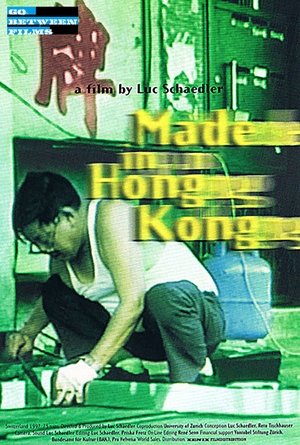 8.5
8.5Made in Hong Kong(en)
The film Made in Hong Kong allows glimpses on a Hong Kong shortly before the 1997 handover to China. But rather than focusing on the expected hysteria Luc Schaedler’s documentary debut works towards complexity by allowing six diverse residents to talk about their relationship to the colonial city. Their life stories beautifully mix with the images of the author. Made in Hong Kong is a very personal portrait of a city in transition and we learn about Hong Kong’s ambiguities and its political and social problems, as well as the uncertainties regarding the time after 1997.
 10.0
10.0A Savage Christmas: The Fall of Hong Kong(en)
The documentary, using the dramatization of fact, makes the case that the Canadian government knowingly sent two unprepared infantry battalions to help defend Hong Kong in late 1941, fully aware that they may have been on a doomed mission. The C Force, consisting of about 2000 soldiers from the Winnipeg Grenadiers and the Royal Rifles of Canada (from Quebec City) were, with the other British, Indian and Hong Kong troops, attacked on December 8, 1941 and overwhelmed by Japanese troops, leading to numerous casualties and the surrender on Christmas day. The Canadians would spend more than 3 and half years as prisoners of war, in horrible conditions. Part of "The Valour and the Horror" mini series.
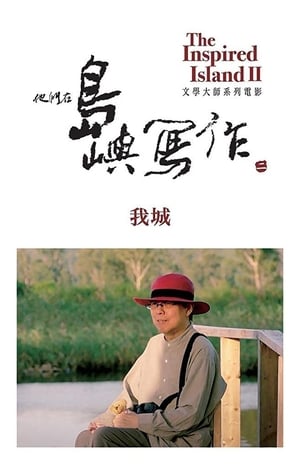 0.0
0.0The Inspired Island: My City(cn)
Poet and author Xi Xi is one of Hong Kong's most treasured writers. Though also acclaimed in Taiwan and mainland China for seminal works like the essay Shops, her writings are firmly rooted in the spirit of Hong Kong. Leave it to Fruit Chan, another staunchly grassroots auteur, to make a documentary on Xi Xi's career. Chan sought out renowned critics and writers to discuss Xi Xi's works, starting with 1979's My City. He also juxtaposes photos of a changing Hong Kong with readings of her writings, and even playfully inserts characters from her stories into the film.
 0.0
0.0Hong Kong Hustle: The Chinese Cinema Odyssey Of Stephen Chow(en)
The first feature-length documentary to explore the career of Stephen Chow; featuring collaborators, critics, and academics. Produced for the Shout Factory release of his classic work on Blu-ray, "The Stephen Chow Collection" released in 2024. Fans will learn how Chow went from Hong Kong's TVB to feature film riches, with his peculiar brand of localized comedy, to becoming one of the most successful brand names in Mainland China, including the blockbuster reception for his comedy "The Mermaid" in 2016.
 6.9
6.9The Lovers and the Despot(en)
Hong Kong, 1978. South Korean actress Choi Eun-hee is kidnapped by North Korean operatives following orders from dictator Kim Jong-il.
 0.0
0.0Lai Man-wai: Father of Hong Kong Cinema(cn)
In the life of Mr. Lai Man-wai, he had seen the most turbulent times of recent Chinese history. From the fall of the Qing Dynasty to the founding of the Republic, from the Sino-Japanese War to the founding of the People’s Republic. With a patriotic spirit, he joined the revolution and used the theatre to promote the revolutionary course. For a ‘stronger China’, and ‘education for all’, he chose film as his life long goal and career. Lai was more than the father of Hong Kong cinema was; he was also one of the pioneers of the Chinese cinema. He made Hong Kong’s first short fiction film ‘Zhuangzi Tests His Wife’. He opened the first Chinese owned cinema, the New World Cinema, in Hong Kong…. In the several decades, Lai had devoted his life and fortune in writing this glorious inaugural chapter in early Chinese film history. The technical enhancement, the introduction of foreign techniques and equipment were all part of his contribution to the Chinese cinema.
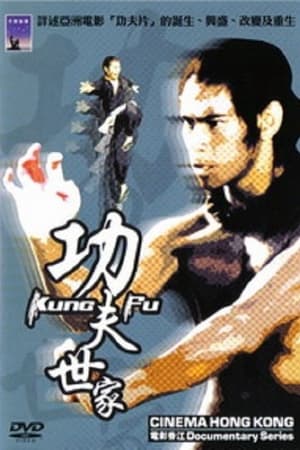 6.8
6.8Cinema Hong Kong: Kung Fu(cn)
Filmmaker Ian Taylor examines the impressive legacy of Hong Kong cinema -- specifically, how martial arts crossed borders and become an international phenomenon -- with the help of footage and interviews with the stars who made the genre what it is today. Director Lau Ka Leung (who helmed The 36th Chamber of Shaolin) joins in, sharing his thoughts on how certain cinematic technologies have improved martial arts films and expanded their appeal, on the set of Drunken Monkey (2003).
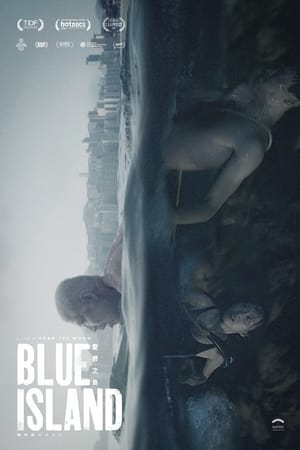 6.7
6.7Blue Island(cn)
Although the Chinese government promised that Hong Kong would retain separate status until 2047, in recent years the Chinese state has consolidated its power over the metropolis. Large-scale protests by the populace have been brutally suppressed. This mix of documentary, fiction, and visions of the future reveals the current state of desolate depression among the people of Hong Kong. “A desperate attempt to capture the final moments of a sinking island”, as maker Chan Tze-woon himself puts it.
